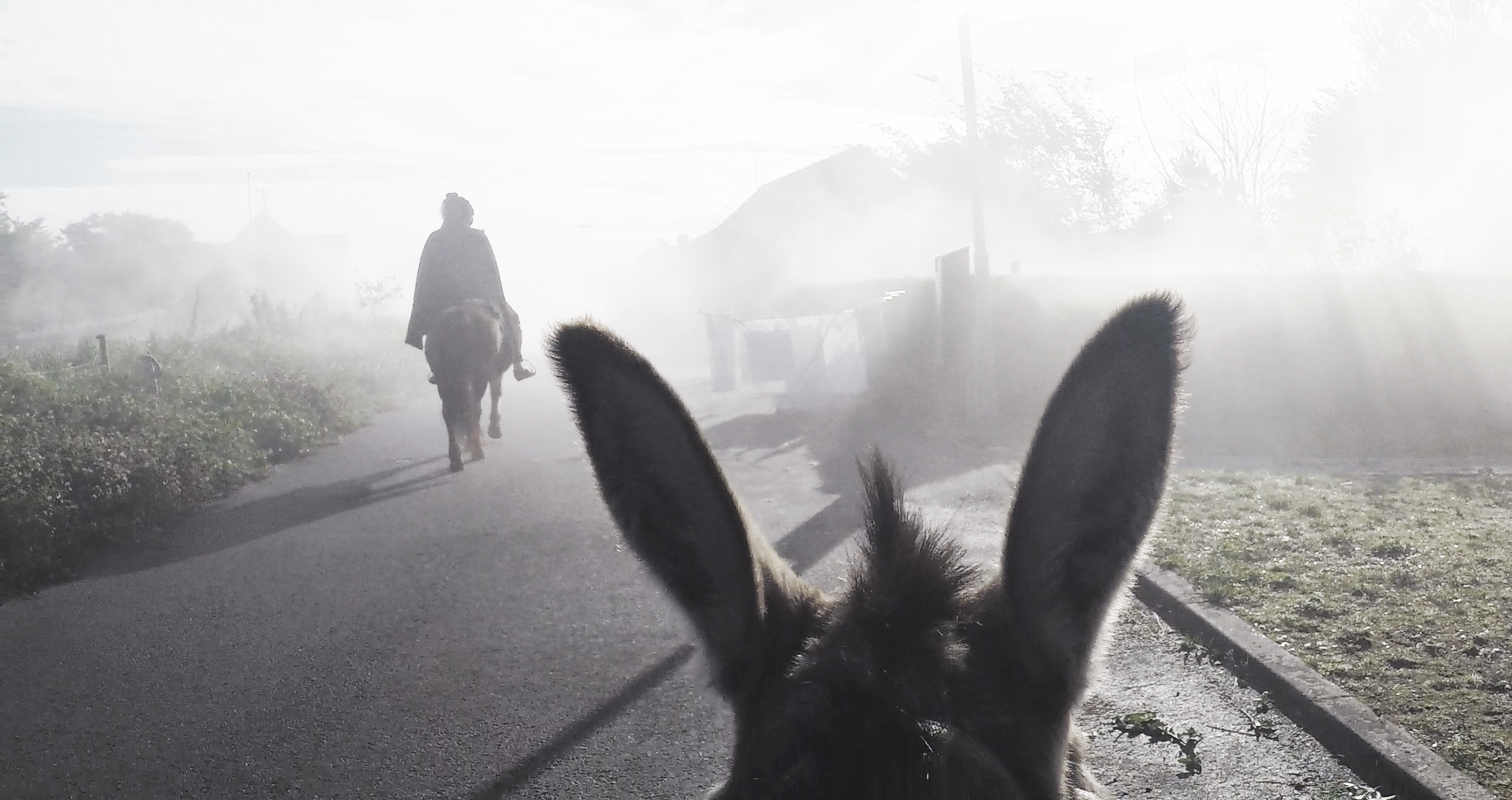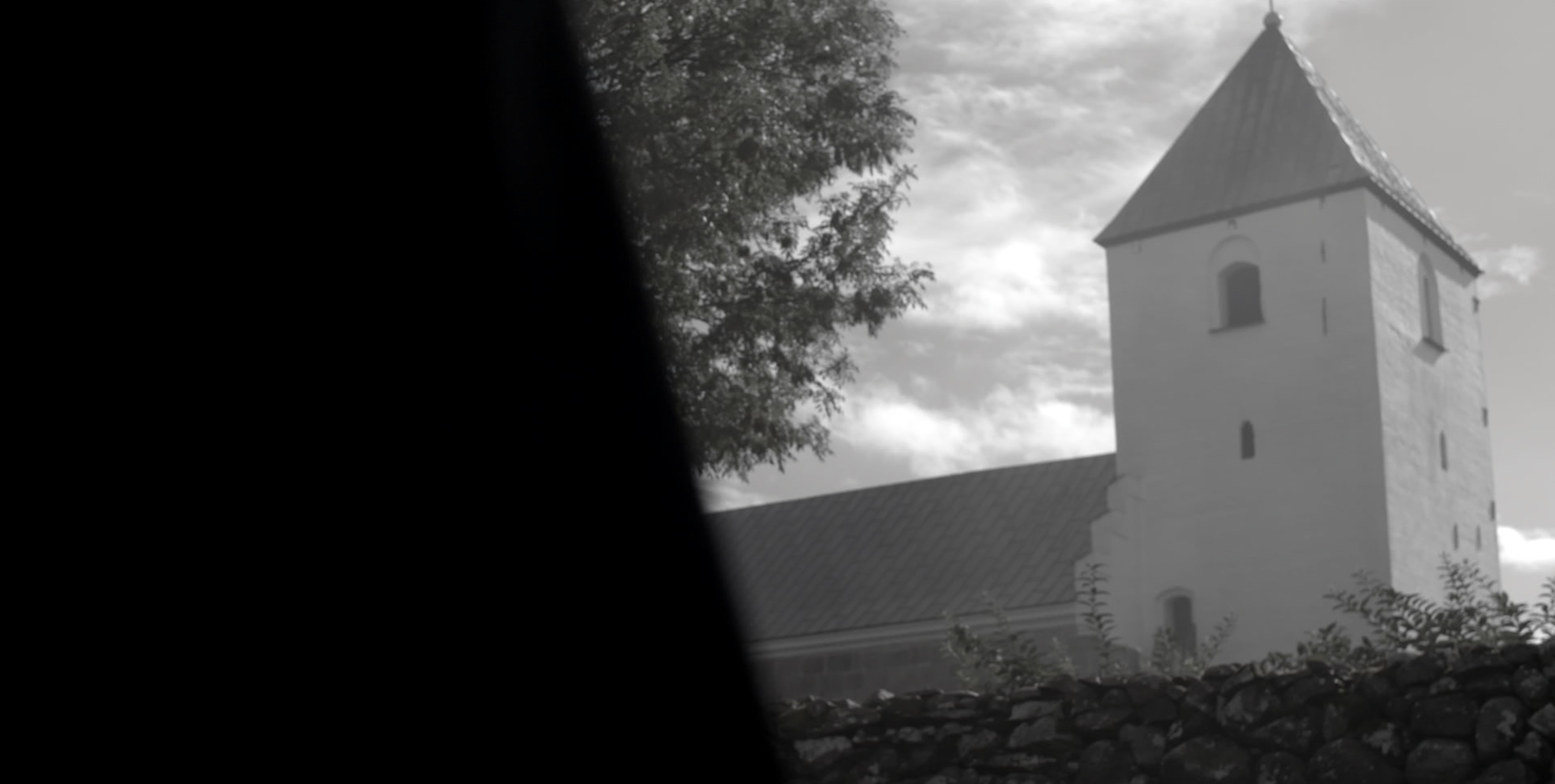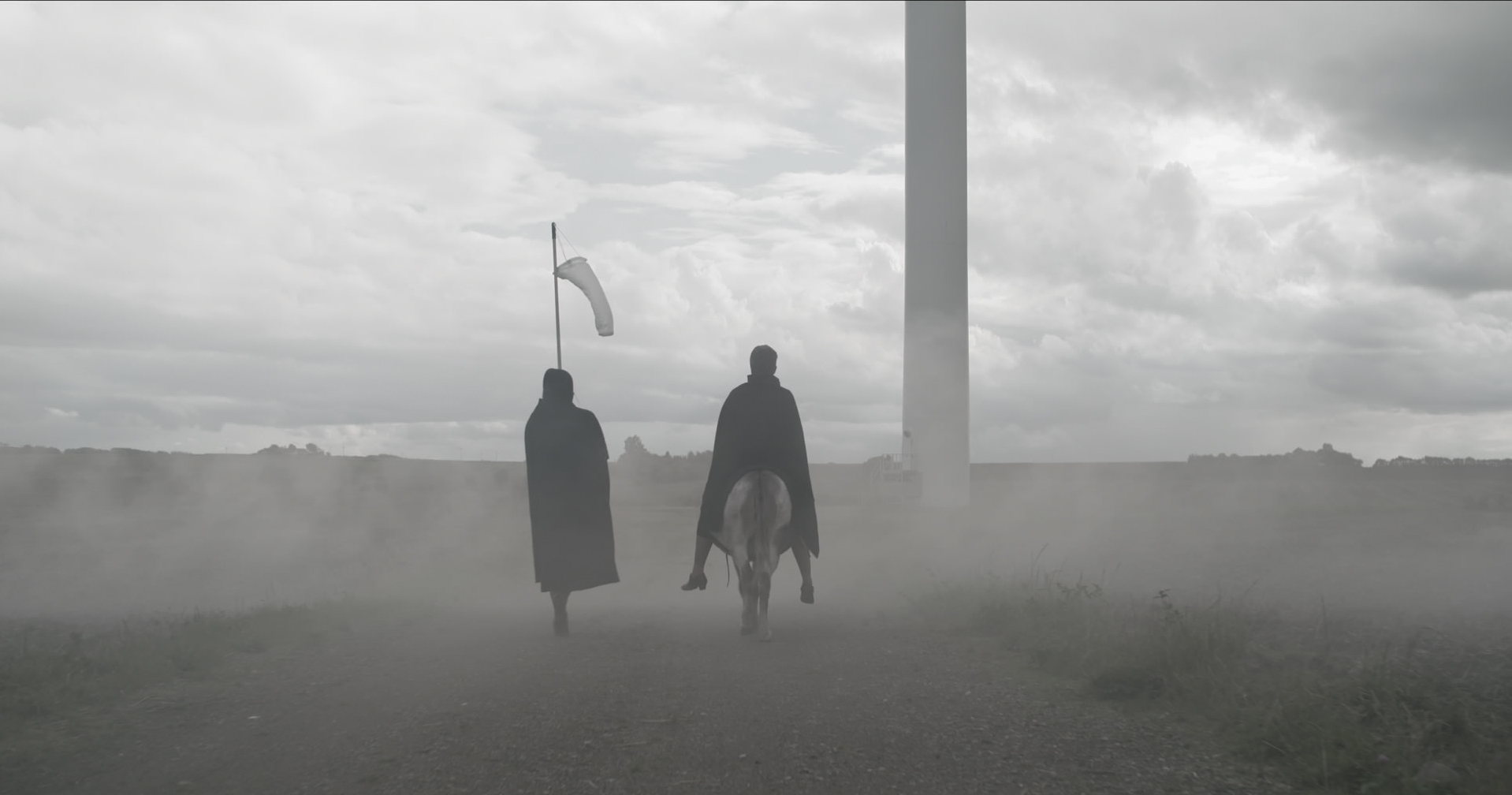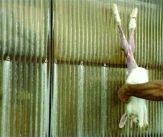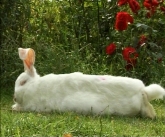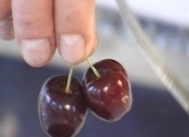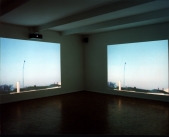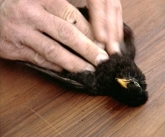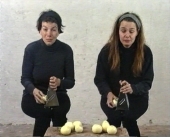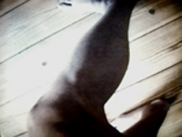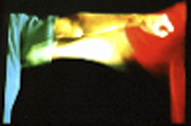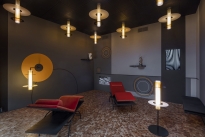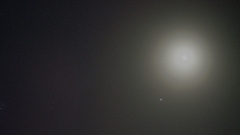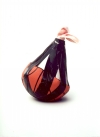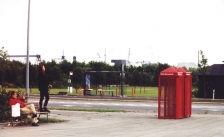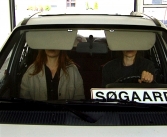- SELECTED WORKS 2014 -
-
- PARTICLES
- BLOWERS / BLÆSER VED HAVET
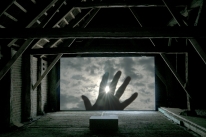
- LUNCH / FROKOSTEN
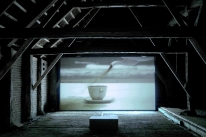
- LIGHT OBJECTS / LAMPS
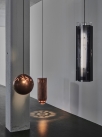
- MODERN ESCAPE
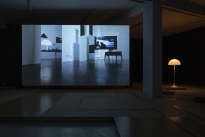
- OUTSIDE IS PRESENT
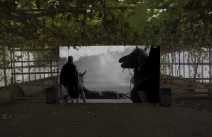
- KIND OF NOISY SILENCE
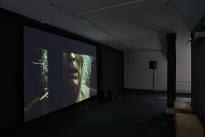
- AT THE FENCE
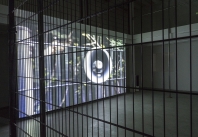
- CAMP KITCHEN
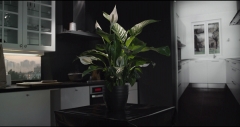
- CIRCLE IN ROTATION

- STAGGERED SHAPES

- DISPLACED ELEMENTS
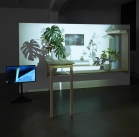
- GRAPHIC PRINTS

- RANDOM COMPOSITION

- BUSY CIRCLE
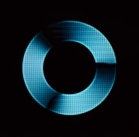
- DEFENSE AGAINS THE UNPREDICTABLE

- DRIFTING
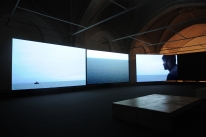
- REALTIME
- SELECTED WORKS 2002 - 2014
-
- POSITION OF THE SPECTATOR III / ADONIS STAIRCASE
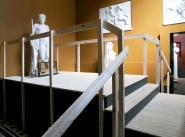
- THE MISSING DARKNESS/ 2011
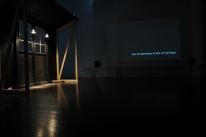
- AWARENESS OF A TEMPERATURE/ 2010
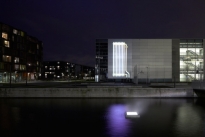
- GETTING IN SYNC WITH NATURE/ 2009
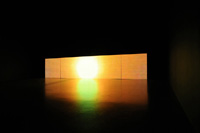
- SNOWMEN AND LADIES/ 2010

- VIDEOS, SOUP, BLANKETS AND PIXIE CAPS/ 2010
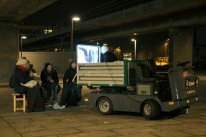
- THE HEATER/ 2010
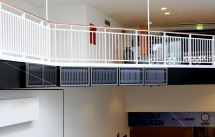
- POSITION OF THE SPECTATOR/ 2008
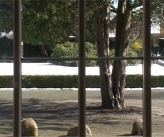
- KEEPING IT SIMPLE/ 2008
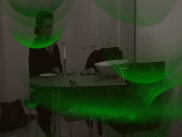
- CAMARADERIES/ 2007
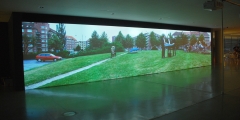
- A MATTER OF STRATEGY / 2007
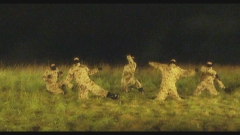
- OFF/ 2006
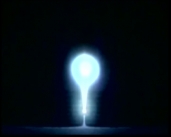
- CONSTRUCTION OF DELAY/ 2005
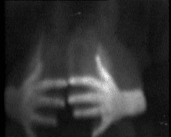
- REPLAY/ 2004
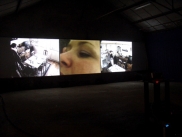
- BLIND WALK/ 2004

- INSTALLATIONS IN URBAN SPACES/ 2004-2009
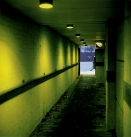
- TERRITORIAL STATEMENTS/ 2002

- I AM SO FUCKING HAPPY/ 2002- ONGOING
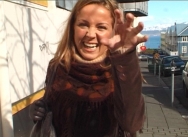
- POSITION OF THE SPECTATOR III / ADONIS STAIRCASE
- SELECTED WORKS 1994 - 2002
- PUBLIC DECORATIONS
- PHOTOS AND PRINT

Outside is Present. Skulpturlandsby Selde 2017. Photographer Barbera Katzin.
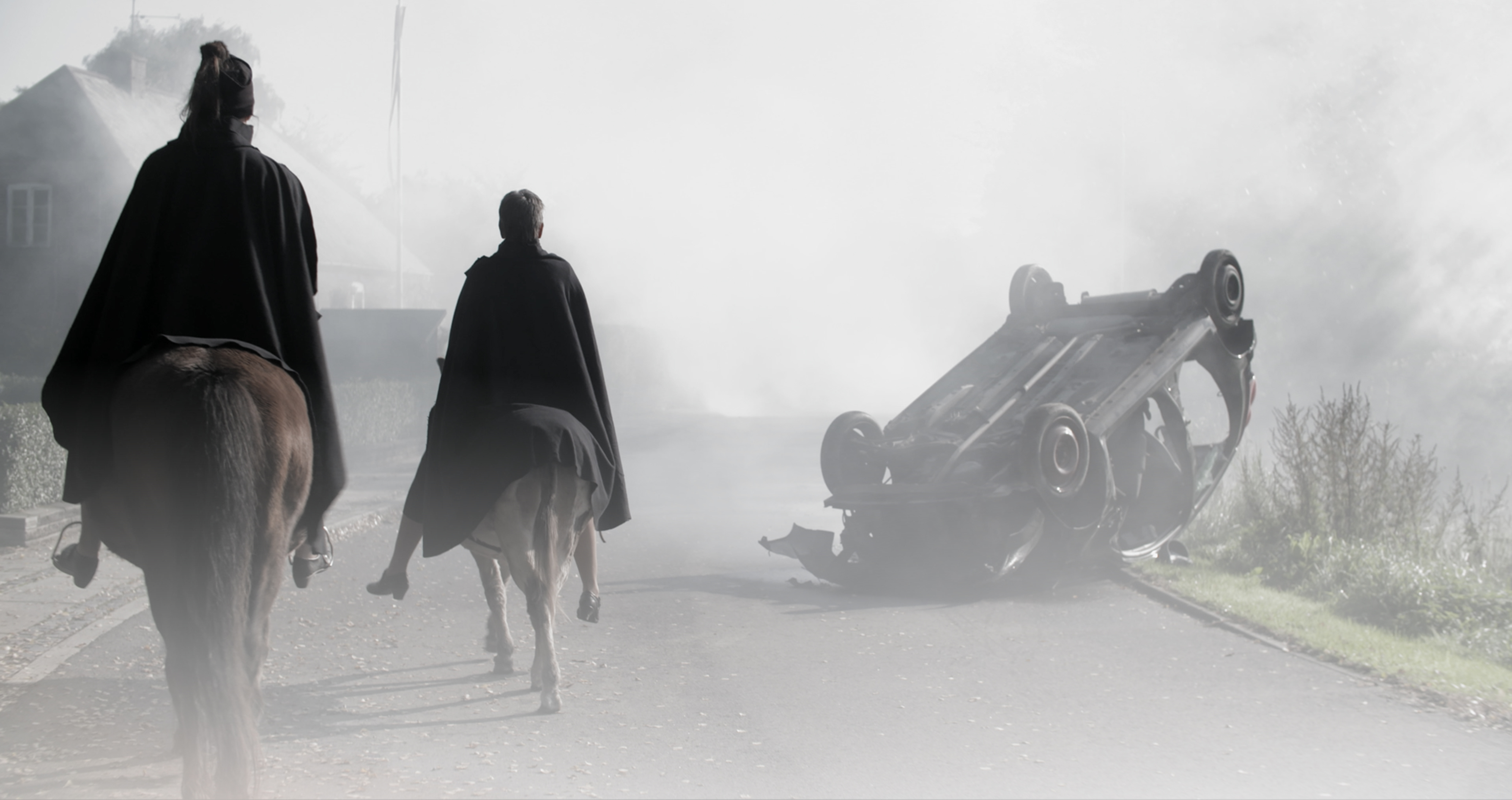
Outside is Present.
2017. 14:57 min.
The videoinstallation Outside is present by Hanne Nielsen and Birgit Johnsen is based on the often stereotype and one-sided media images from the world's many focal points and from provincial places far out in the countryside.
In Outside is present blend these two confrontational media representations, so a small village in Denmark is hereby transformed into one of the world's focal points. The small well-known facets of the village thus change character in fictionalization and can either occur as everyday realisme, idyllic or scary, depending on the eye that looks: whether it is the individual in relation to the village, the village in relation to the capital, the capital in relation to the country or the country in relation to the world.
A similar superfictional view of the world led Miguel de Cervantes' famous madman Don Quixote.
Don Quixote had read so many knight novels that his mind had taken such damage that fiction and madness transformed reality into a fantasy world and himself to the knight. Together with his good neighbor Sancho Panza, he rides and attempt to fight monsters or actually wind turbines to defend goodness and justice, and support the oppressed people in a desolate and totalitarian Spain, - as in the early 1600s, the Inquisition still continued to expel Jews and Muslim Moors in an attempt to achieve a religious unity and a homogeneous state.
Don Quijote is often referred to as the first modern novel with its character of many intertextual cross-sections, fictions, irregular styles and opposing compositions. They give the text a grotesque clumsy, 'carnival' and comic flair in its subtle and satirical social criticism, which simultaneously focuses on the eternal conflict between ideal and reality, madness and everyday realism. The knight Don Quixote, the first modern human being, asks whether in a time of ancient values and an almost true knowledge based on prejudice, perhaps you should rely more on your senses and instead take on the breath, how crazy it may occur?
Similarly outlying areas is often exotic in comparison with the world's many focal points, and with the expression of French philosopher Michel Foucault, you can find a 'heterotopic' sense potential. According to Foucault, “heterotopics” are the opposite and different and the outsiders, but therefore spaces in society, which possess a very special fantasy power and transit condition in relation to the efforts of an otherwise sought-after homogenous and centralized world.
By Karin Petersen, external lecturer at the Department of Aesthetics and Culture, Aarhus University
